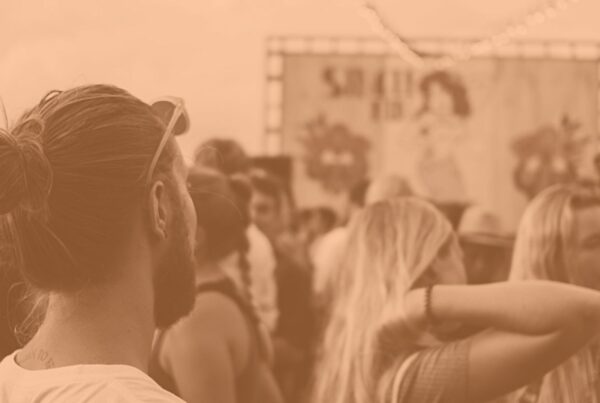If you’re in the events industry, you know that event associations can be a great thing. The perks and benefits one gets from being a part of these associations are nothing short of amazing. Education, information, and exchange of ideas are all things we need as both human beings and an industry. But while these are facts, the question of whether or not event associations remain relevant is still out there. Do they even matter anymore? Do event professionals actually need them?
Well, that is exactly the topic we’ll be tackling on this week’s edition of Event Brew. Our always amazing hosts Will Curran, Nick Borelli, Thuy Diep, and Dustin Westling are here to share their opinions on the subject. And as always, having different perspectives and backgrounds makes for a pretty amazing conversation. So grab your favorite drink, it’s time to get brewing!
Click here for the full audio transcription.
 Why Do Event Associations Exist?
Why Do Event Associations Exist?
“Our industry profits a lot from associations”, begins Will. “So naturally, for us to say that we don’t think that the Event Industry Associations would be condemning the hand that feeds in some ways”. And the thing about associations is that they’re not exclusive to our industry. As Nick says, “there is an association for everything. If associations as a whole die, it wouldn’t be just your industry associations disappearing”.
Do They Need To Exist?
“The association is a dead premise”, says Nick. “So, associations don’t need to exist. Their primary focus has always been the gathering of people for the purposes of the advancement of an industry through networking and community. And in addition to that, with a proliferation of education. I can get all those things for free as much as I want online any given day, I can make friends, I can create a hashtag, I can find tons and tons of content”.
Dustin feels like Nick is overlooking some other great benefits from associations. “I think certification and advocacy is something that’s really important. And I think the successful associations that are still out there are really good at this and they’re really good at creating certification programs that keep people up to date and create common knowledge”, he says. “And then I think, advocacy and in a time where, as an industry, our voice needs to be heard more and more by the government and by the lawmakers”.
Will sees Dustin’s point, particularly when it comes to security issues. But he does feel like “sometimes associations have major issues, they move too slow on things. Because we have to get buy-in, we have to get everyone to vote on it. So I think maybe my counterpoint to it is that while you can a true brought together group of people, it’s too slow for the 21st century”.
Event Associations: Face To Face & Community
Thuy believes that the power of event associations lies in the fact that people get to be together. “The purpose is to positively impact our industry, to continuously grow. So there needs to be that sense of community that’s like bringing everyone to gather for what common objectives in order to get to those points”, she says. “I think there are platforms within even all the associations that you can connect with others that would add a lot of value, not only to yourself professionally but to the company that you work for. And really it’s to our industry as a whole. It’s really that bigger picture, which in turn helps the businesses from all aspects”.
But Nick believes that “there’s a way to have these live face to face community things without necessarily being an association and having the structure, which sometimes leads to again not bringing people together actually, but tearing people apart by creating artificial walls between what would be one industry and hence that creates a little fiefdom over here and a little fiefdom over here”.
Let’s Talk About Money
“I think there’s a huge opportunity for us to make an impact in a bigger way. And when you take collective voices to a fight, it’s so much better than one person just trying to drive a petition online”, says Dustin. “And trying to create a movement where, as what an association and what a collective of people does is it puts energy, it puts dollars, it puts some facts and figures and some data behind that ask without it having to form online”.
This is where Nick steps in, saying that “I just see a climb of lack of power and therefore ease of movement and decision making. You get to gather a small group of people and you’re a flexible enough that you can go in a local government and make those local decisions. And then as the organization gets bigger or as the parent organization gets more involved, they have money coming in from so many different directions as to be able to hold the thing together. And that handcuffs you from the ability to actually say with any kind of authority, anything. My fear of associations has always come from the fact that money makes them impotent”.
What Happens When The Dollars Come?
“I think it’s just a natural progression of any organization. Once there is a massive amount of funding involved in order to handle big issues, then eight things get much more complicated as far as the ability to actually go after anything”, says Will. “All of us have different levels of autonomy as individuals right now to be able to say certain things. But we don’t necessarily say absolutely everything because we’re not completely anonymous. Then you involve thousands of members and then also hundreds of stakeholders and sponsors and your ability to just make the changes and at the speed in which things move now at this time is very challenging. So I’d see the potential versus the reality of things at certain levels and like that’s my fear”.
 The Impact Of Event Associations
The Impact Of Event Associations
“When I see an issue, I go, what is the association’s responsibility in this? Is it our responsibility to get into this dog fight or is it our responsibility to provide people with the information they need to make their own decision?”, says Dustin. “I’ve struggled with that a few times where I thought if I was an employee of this organization, I would fight these people tooth and nail”. Nick agrees, adding that “in leadership roles, specifically when it comes to volunteers, there’s a lot of political ramifications for any decisions that you make”.
Volunteer Work
Will addresses a topic that is incredibly relevant when thinking about event associations. “I don’t know many associations that I have as clients or that I’ve participated in where the people who are doing the work to keep it alive, to keep it, functioning. A lot of them are volunteers. And I think what ends up happening is you get people who get really burnt out very, very fast”, he says. “But for what I end up seeing a lot of times is a joint association, the potential to build really great relationships, but then someone’s like, “I’m too busy. I can’t do this anymore. I have to leave”. And then it puts a sour taste in people’s mouths”.
Dustin, who is very involved with an organization, speaks of the fact that you’re expected to do tons of work and organize dozens of events “and then on top of that, you have to run a business. You have to keep your finances, you have to run your own marketing and NPR campaigns. And oftentimes what happens is that you end up with people that would never in a million years get hired for these jobs doing them. It’s nothing about those people. Those people are goodhearted, hardworking event profs that want to come and make a difference. And they’re set up in a situation that they just can’t win”, he says. “And I think that as organizations, they need to start lightening the load of volunteers and they need to start using their volunteers as real community leaders and being the voice for the communities that they represent”.
Bigger Doesn’t Mean Better
“As you get a bigger scale, you get more value”, says Will. “Because you have access to more people. The directory gets bigger. We have more money to be able to put on better events and things like that. But it seems like things never get better as they’re getting bigger. I think that’s just also a faucet I think of having a business in general”.
“There are different kinds of animals”, adds Nick. “Where let’s say some of the larger ones have all the problems endemic to them because they’re beholden to so many people. But things like policy change at a large level, unless you have that money, no one listens to you. So, there’s kind of a plus and minus with small and big. I think that you will find your place eventually, that makes sense for you to put your energy into. But I think both have their place. I think that when they try to squash each other as opposed to work together, that’s the main problem”.
The Free Model In Event Associations
“I do think the free model is possible”, says Will. “We only monetize and not necessarily make money, but we have to obviously pay to do these big gigantic global summits where you bring together. But the way we do it is just like, let’s find out what the costs are and charge people tickets as a normal association event does. Just the difference is I think that we’re not trying to at all have any sort of money leftover in any sort of way”.
“I look at these free groups that are organizing and I often wonder how they pay for their insurance”, says Dustin. “I wonder how they pay for technology to protect your data. And I wonder how they run the most basic elements of a business that is an expectation now. And I wonder if those things are happening and if these groups understand the importance of them”. Nick has his doubts on the free model. “I just don’t believe in the continuity in like longterm viability of people giving their time and being good at it away and then having no benefit to them. I could understand charity to a degree. But the sustainability of something I just don’t understand”.
What About Success?
“I don’t think it’s very possible to game that system forever”, says Nick. “I think you can swoop in and be the new energy around something or whatever. But ultimately, I haven’t known that many people to be really successful off of the back of an association without feeding into the ecosystem itself. I do believe that one of the main failings of associations is the model that most of them eventually end up with in their leadership. which is to say, people you want to be around because you’re comfortable with them. They make you feel good, they’re not too threatening. It’s a very natural thing, especially in volunteer leadership, not to surround yourself with people that you don’t enjoy being with. And I think that real opportunities to have voices of different backgrounds and different ways of looking at things, that is such a strong benefit to an organization, especially one that is not autocratic by its very nature”.
Leadership In Event Associations
“When it comes to representing lots of people, I need to have lots of different kinds of people at the table. And not just mostly the same. And what it ends up being, I find it in the leadership groups are the people that have survived it the longest. So all their kind of survivor biases are intact”, adds Nick. “You surround yourself with people that are similar to you. You believe that that’s the criteria for leadership because you know, you’re all on the same page. But the actual, I would imagine criteria of leadership are strong people with strong opinions who have the best interests of the organization and the stakeholders in mind”.
Giving Event Associations A Fair Shot
“I just want to make sure that it’s clear that volunteering with these organizations is so important when you’re starting out”, says Dustin. “I’m not talking about volunteering on a board. You don’t need to do that. But putting your hand up, showing up to meetings, helping at the registration table, helping to clean up or set up or do whatever. And getting to know people. Every young event prof that is successful in my market started volunteering through an association. You don’t have to take a board seat, but you should. You should get involved and you should know who’s who and the best place to meet your potential client or your next boss is at these association events”.
Thuy adds that “I’m here today where I’m like sitting because of associations. And because when it comes to volunteering, I want to be there. I want to be that change and to collaborate with all these people that you thought are from different aspects of that puzzle that we’re constantly just putting together”.
Conclusions
And that’s a wrap on this week’s amazing discussion about event associations! What are your thoughts on the matter? Are you part of any association? Do you feel strongly about its role in your life and career? Make sure you let us know. And don’t forget to tune in next week for another exciting edition of Event Brew!
Resources
Mass Shootings In The Events Industry: Propelling The Safety Conversation Forward – Event Brew #004
Fat LA










